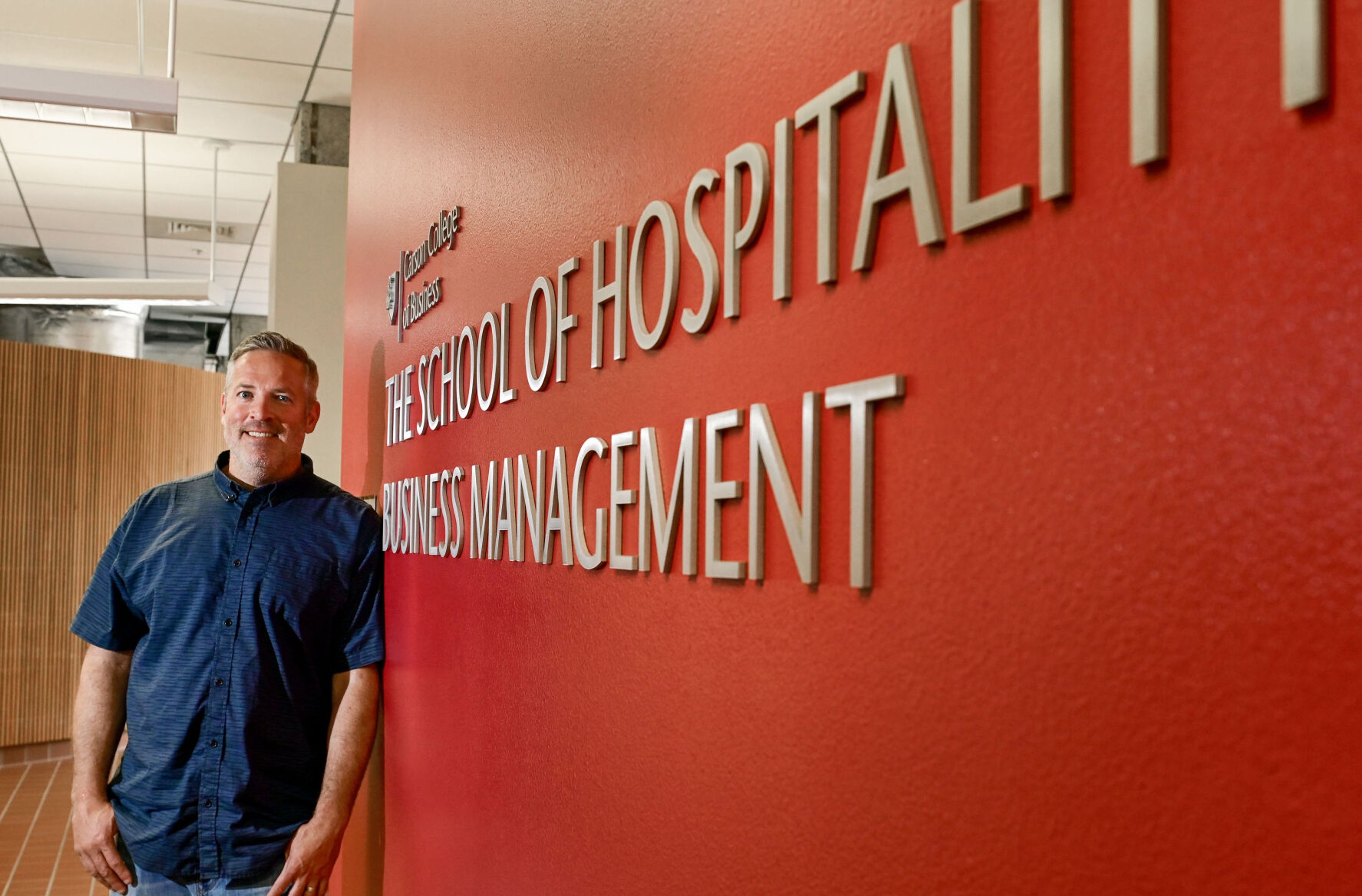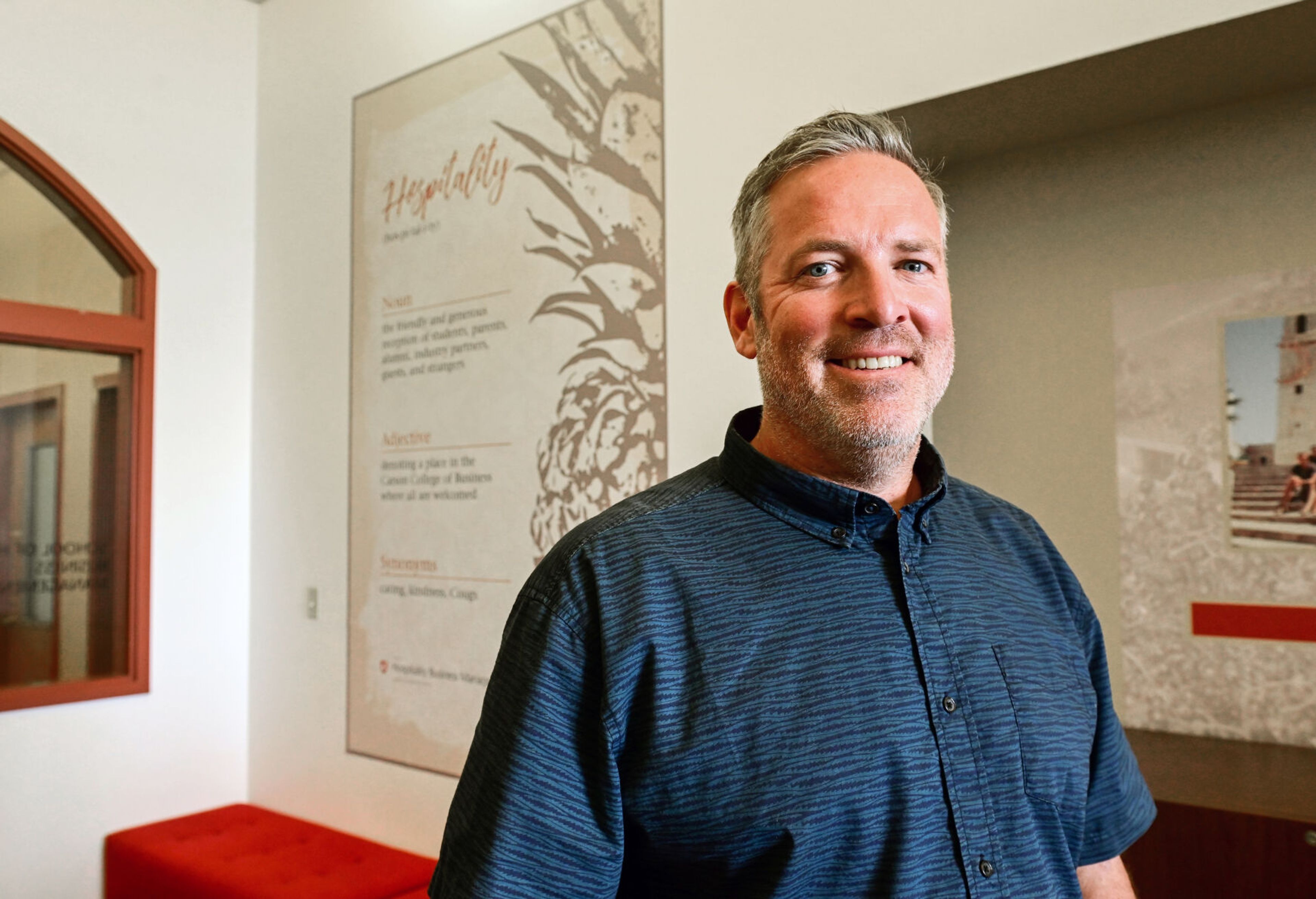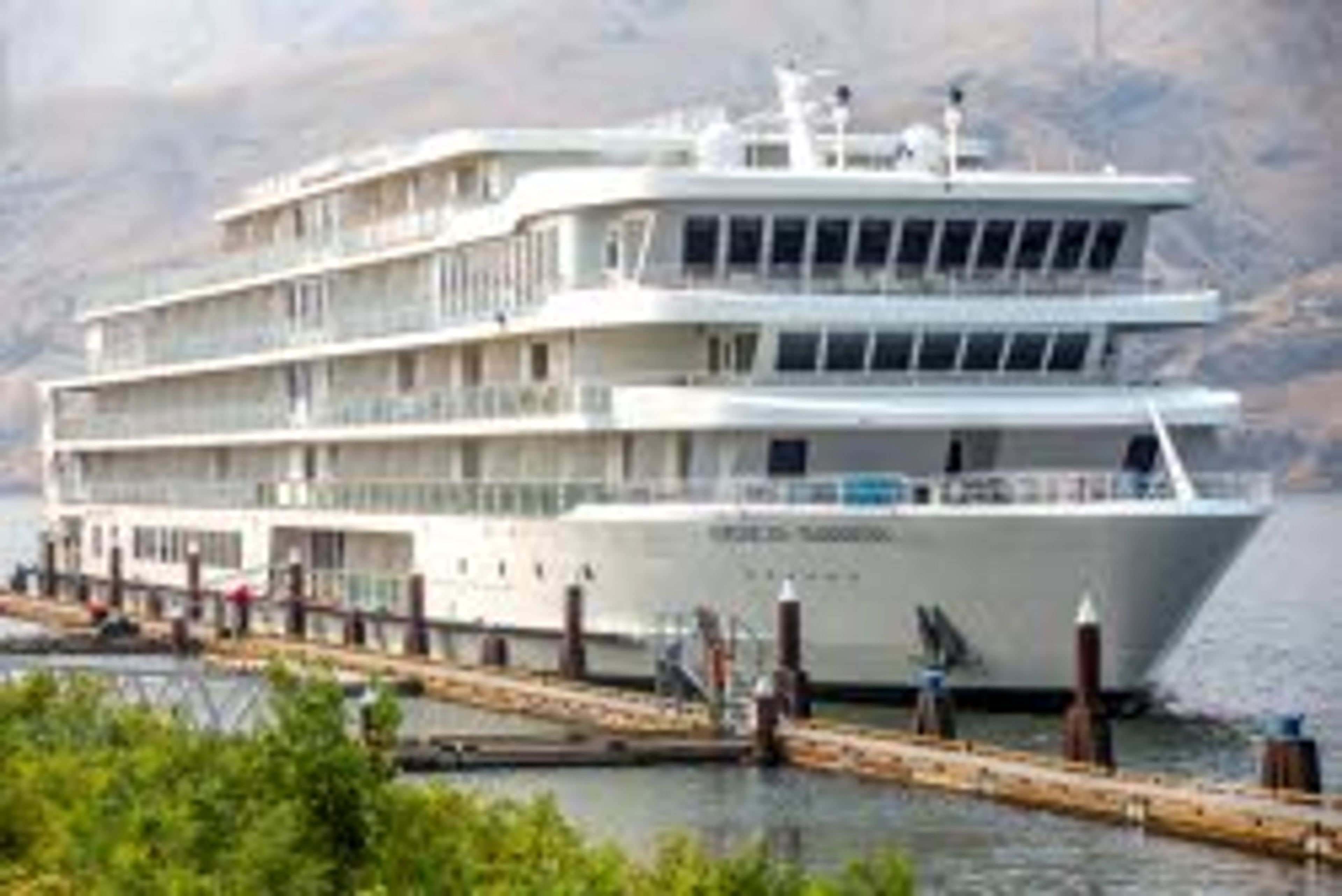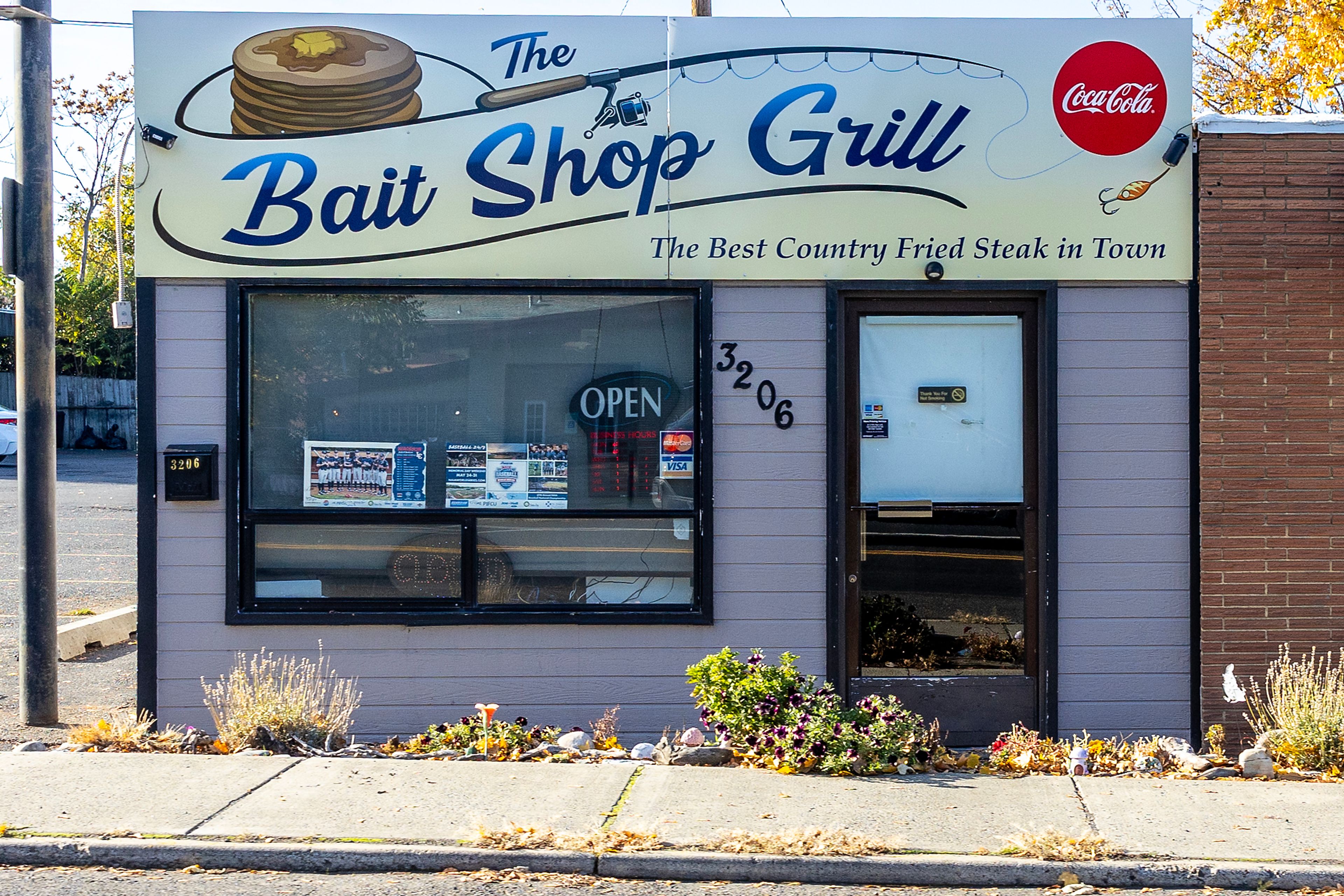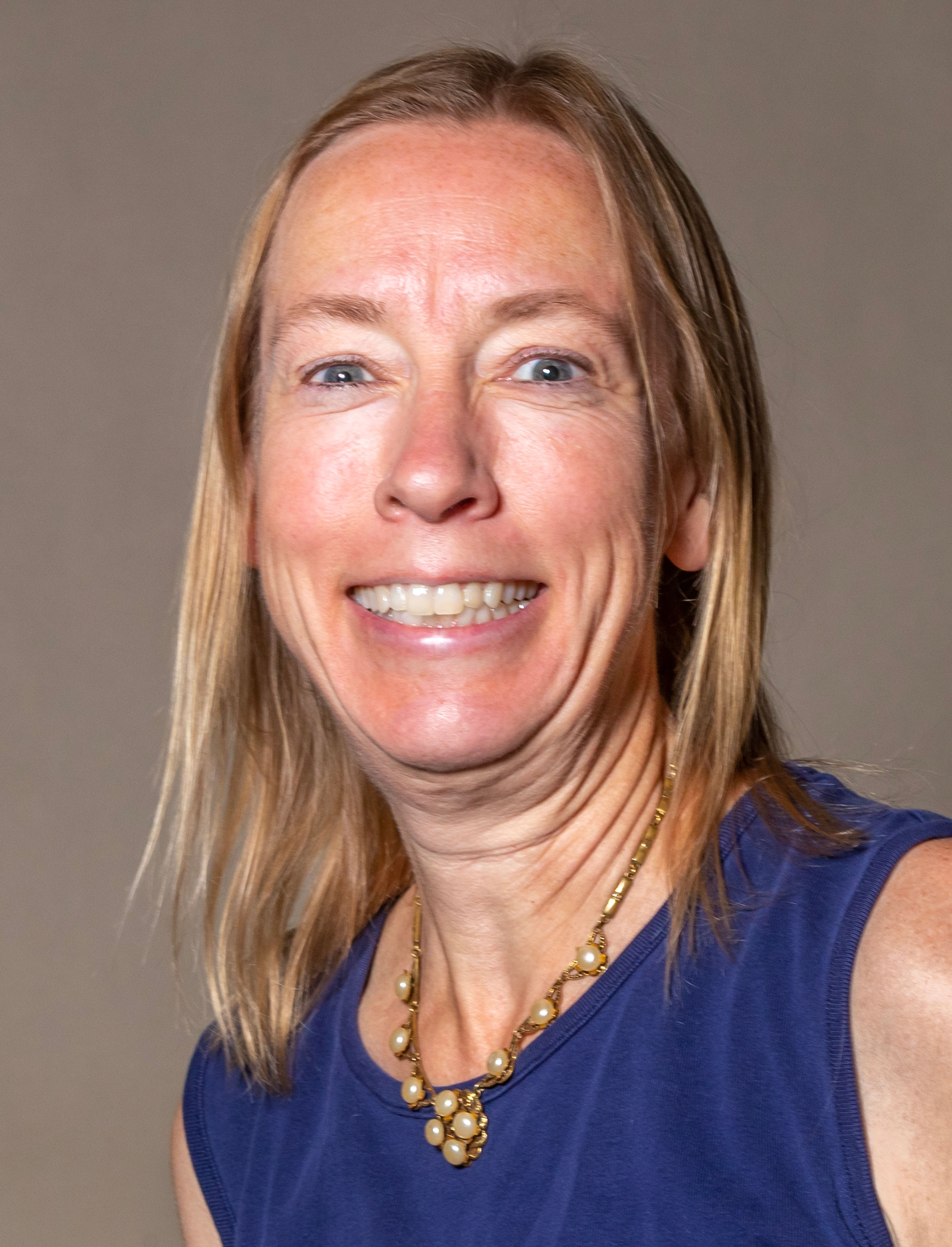Pita bread, pizza and profits
How Jim Harbour, WSU hospitality director, balances academia and restaurant success
PULLMAN — Anytime a cook at South Fork Public House in Pullman opens a package of pita flatbread, a clock starts ticking, counting the number of hours until the simple staple loses its freshness.
And while a serving of pita bread typically costs less than 50 cents purchased wholesale, each portion that doesn’t land on a customer’s plate quickly eats into the profit margins, said Jim Harbour, an owner of South Fork Public House.
The importance of monitoring expenses, however small, is a key to running successful businesses that Harbour has been sharing with students at Washington State University’s Carson College of Business since 2006 where he is a career track associate professor.
This month, Harbour was promoted to director of the School of Hospitality Business Management in the Carson College of Business at WSU.
The experience he has as an academic and an owner of three Pullman restaurants, an ice cream shop and a catering company, Harbour said, will inform his approach in his position.
I spoke with Harbour about his businesses, WSU’s hospitality program, the still lingering effect of COVID-19 on the hospitality industry and higher education and other trends that will shape his priorities in his new role.
Here are the edited highlights of our conversation:
Elaine Williams: Before we dive into other topics, what more can you share about pita bread and how its novelty puts an original take on dishes at South Fork Public House?
Jim Harbour: One of the things that drives creativity in a restaurant specifically is the desire and the need to cross utilize product because you don’t ever want it to go bad or go into the garbage. So whatever it is you use, you have to use it in multiple places. So although bread is very cheap, bread is one of the things that goes bad the fastest. It’s not very shelf stable. When we first started South Fork, we used pita bread in a lot of things. Our fish taco was in a pita. Our steak sandwich is still in a pita. We had a gyro on our menu. It’s part of how we decrease waste and increase offerings.
EW: Could you walk us through the content and approach of the WSU hospitality program with its focus on preparation for real-life challenges in the industry?
JH: Hospitality is a huge umbrella of tourism, food, beverage, lodging, recreation, meetings, events and travel. We are in the Carson College of Business, so all students in the school of hospitality earn a business management degree. They take accounting, finance, management, marketing, information systems, all of the core classes. Then in addition, we have operations courses for restaurants and hotels and the heavy numbers courses. At the end, there’s a choice of two capstone courses. In one, students run a simulated fictitious hotel. Their decisions have an influence on the productivity and the efficiency of the hotel. In another, they come up with a new service or product and they’re taking it through the entire process. At the end, there’s an event where they pitch their concepts to faculty members who grade them using the same criteria as investors.
EW: Reflecting overall trends in higher education, a decline in enrollment of the hospitality program accelerated during COVID-19 and hasn’t yet rebounded. What do you believe caused that and what plans do you have to address it?
JH: Even though hospitality is one of the biggest industries in the world, during COVID-19, hospitality was very much a vulnerable industry. People saw that. Maybe that’s a little bit nerve wracking. A person might think “Why would I put myself in that industry?’ We have got to overcome that thinking and increase enrollments. We have got to get more students engaged. More people creates more energy. As a department and a school, we need to come up with innovative ways to attract, to retain and to celebrate the students we bring into our space. We have some of the best faculty in the world, but the best faculty in the world, creating some of the most top-tier research in the world, quickly run out of a job if they don’t have enough students. I want to be a facilitator who takes the skills we have in our department and in our communities and the talent we have on our board and in the industry and brings them together to create opportunities for students and for growth.
EW: The research the school of hospitality does is one of its strengths. What can you share about the types of studies your faculty members do?
JH: A lot of the research we do is to shed light on what different demographics of customers want in certain types of amenities. When you go to a hotel, there’s many people who don’t want to have to go to check in. They want to just be able to use their phone. There’s also a whole segment of other people that don’t want to do that on their phone. They want to engage with someone at the front desk. That’s why we have so many different kinds of hotels. A traveler on business is going to want different things than a family on vacation. We focus on artificial intelligence devices in service delivery, sustainability, service management, tourism, hospitality marketing, wine service and marketing.
EW: Outside of the university, you have navigated the infrastructure upgrade in downtown Pullman as an owner of Porch Light Pizza. What’s your take on the project?
JH: Something had to be done. All we can do is hope that this is the catalyst that starts to bring more investment, engagement and a sense of community in downtown. But until we get a bypass around downtown (for State Route 27 and State Route 270), it’s going to be challenging. It’s tough to have the busiest streets in town be the ones where everyone wants to go.
EW: You have incredible enthusiasm for the hospitality industry in spite of how dynamic it’s been in the last decade. What’s behind that?
JH: The work is becoming more diverse. The people who work in it and lead it are more diverse. Our challenges are very diverse. The world we live in is a world of change. I would say nowhere else do you see that more than the food that we eat, the way we get around and how often we travel. We went from traveling almost nonstop to zero travel overnight during COVID-19. Now many people are traveling in electric cars, which changes how fast they get somewhere and how they organize their travel. No matter what the economy does, people don’t stop eating. They don’t stop sleeping. That means that people in the hospitality industry will always have a job. It’s just a matter of providing different price points, different amenities and different services that all revolve around what people want. If you do that, people will want to sleep and eat at the places you’ve created.
Williams may be contacted at ewilliam@lmtribune.com or (208) 848-2261.
